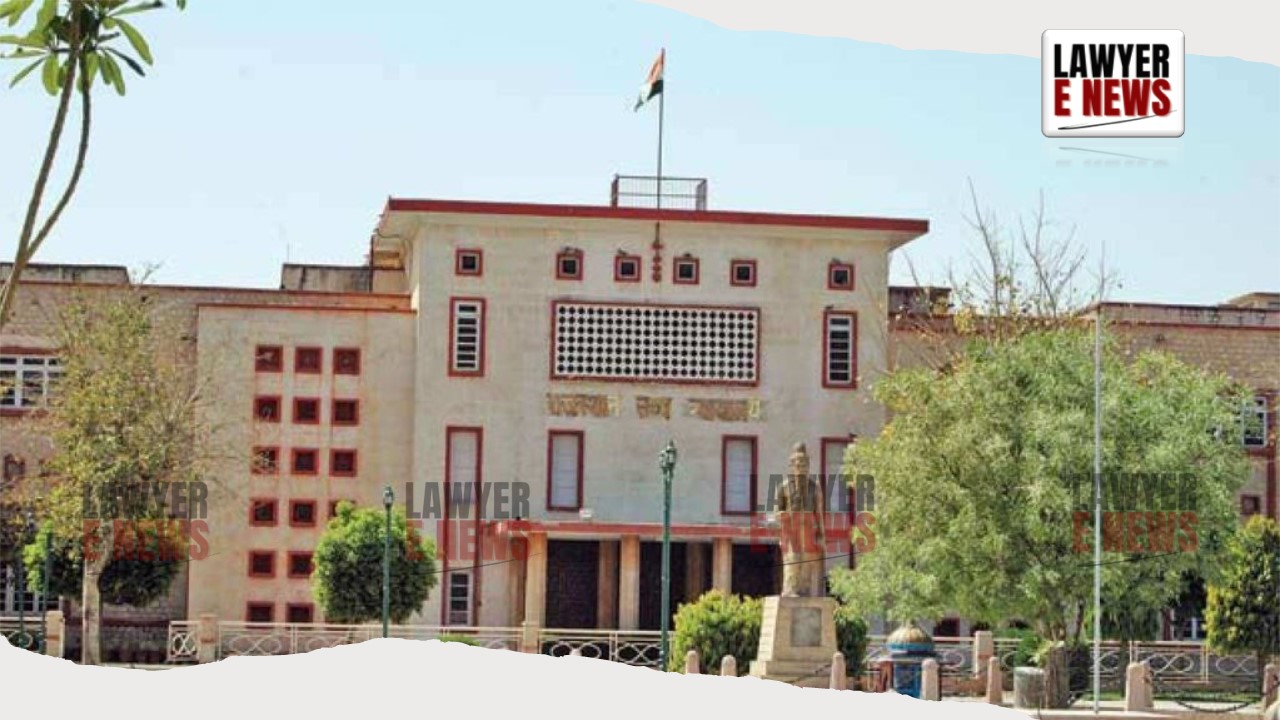-
by sayum
14 February 2026 2:22 PM



Subheadline: High Court sets aside AAR decision, expands scope of applicants under GST for advance rulings.
The Rajasthan High Court has quashed an order of the Rajasthan Authority for Advance Ruling (AAR) that denied jurisdiction over an application by M/s Power Grid Corporation of India Ltd. The court ruled that recipients of goods or services liable to pay tax on a reverse charge basis under the Goods and Services Tax (GST) Act can indeed seek advance rulings. The judgment, delivered by Justices Avneesh Jhingan and Ashutosh Kumar, remands the case back to the AAR for fresh consideration under Section 98(4) of the CGST Act.
The petitioner, M/s Power Grid Corporation of India Ltd., a registered entity under the GST Act, is engaged in the transmission of electricity and regularly contracts third parties for transportation of materials. The petitioner sought an advance ruling on whether the transportation of goods was exempt under Serial No. 18 of Notification No. 12/2007 Central Tax (Rate). The AAR rejected the application on the grounds that it was not maintainable since the petitioner was not the supplier. Challenging this, the petitioner argued that as a recipient liable to pay tax under the reverse charge mechanism, they should be eligible to seek an advance ruling.
The High Court underscored that the petitioner, despite being a recipient, is liable to pay tax on a reverse charge basis and therefore falls within the ambit of a “taxable person” under the GST Act. The court emphasized, “A registered person or a person desirous of obtaining registration under the Act falls within the ambit of the ‘applicant’ in Section 95. It is compulsory for the petitioner to get registered, under Section 24 of the CGST Act, being liable to pay tax on reverse charge basis.”
The bench clarified the interpretation of the term “advance ruling” in the context of the GST Act. The court referred to Section 95(a), which defines an advance ruling as a decision on matters specified in Section 97 or 100 of the Act in relation to the supply of goods or services. The judges pointed out that there is no restriction that only suppliers can seek advance rulings. They stated, “There is no embargo that a person liable to pay tax on reverse charge basis cannot file an application for advance ruling.”
The court highlighted the flexibility in statutory definitions, citing the Supreme Court’s decision in Vanguard Fire and General Insurance Co. Ltd. Vs. Fraser and Ross, which allows definitions to adapt based on the context. This approach supports a broader interpretation that includes recipients like the petitioner who are deemed suppliers for tax purposes.
The court dismissed the respondent’s argument regarding the availability of an alternative remedy. It noted that appeals against advance rulings are permissible only under Section 98(4) and not for rejections under Section 98(2), thus supporting the petitioner’s challenge against the threshold dismissal of their application.
Justice Avneesh Jhingan remarked, “The fiction under Section 9(3) of the CGST Act has to be given full play, by bringing the dealer liable to pay tax on reverse charge basis within the ambit of Chapter XVII for seeking Advance Ruling.”
This landmark judgment by the Rajasthan High Court expands the interpretative boundaries of the GST Act, reinforcing that recipients liable for reverse charge are eligible to seek advance rulings. By remanding the case back to the AAR, the court has set a precedent that clarifies the scope and accessibility of advance rulings, ensuring a more inclusive application of the GST provisions. This decision is anticipated to significantly impact future GST litigation, fostering greater clarity and fairness in tax administration.
Date of Decision: July 2024
